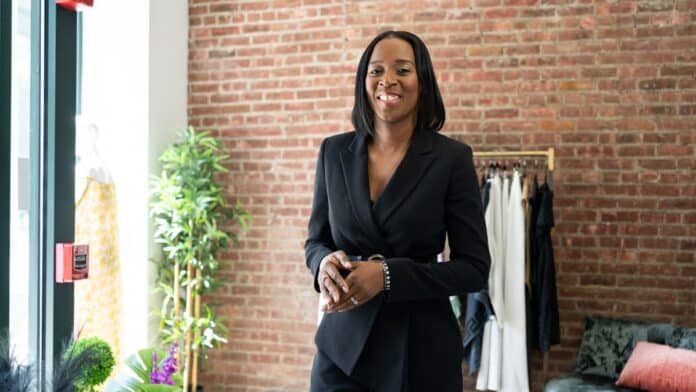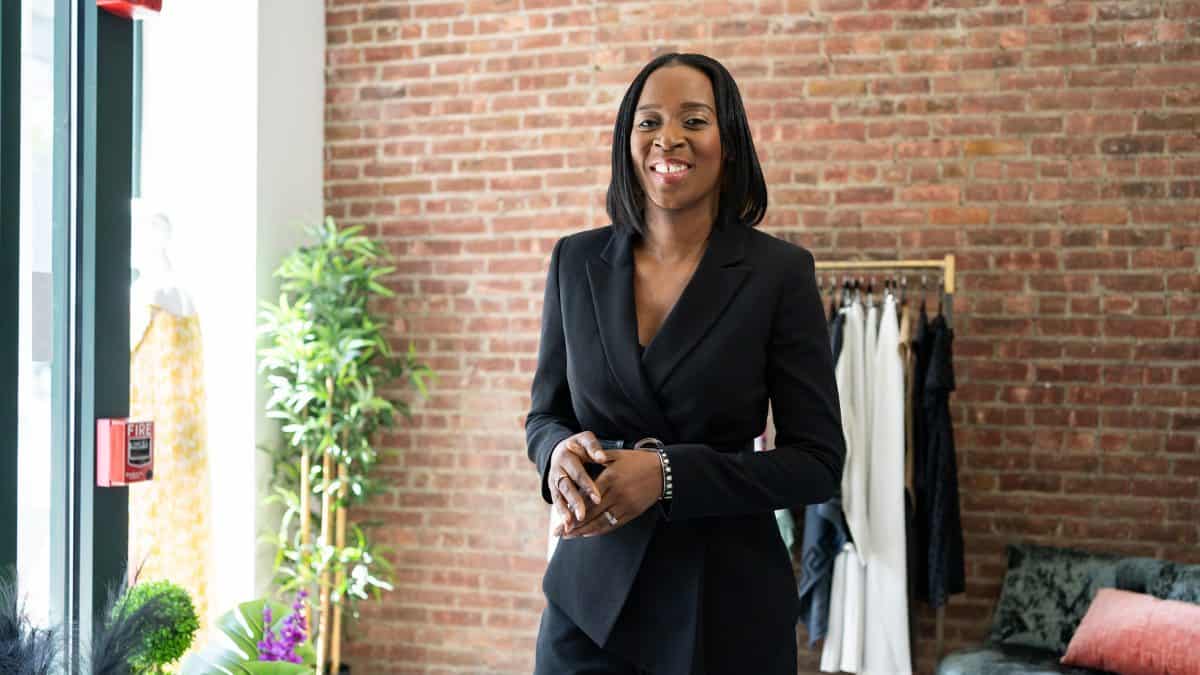
There was a lot of energy and excitement at the Black Business Expo in Philadelphia, but for many small black businesses, this year has been tough. Sales are down and the economic pressures are real.
Sierra Marrero, who has run Indigo Stardust Candles in Philadelphia for three years, knows this struggle well.
Her business grew steadily at first, but this year fewer people have been buying her handmade herbal crystal candles. And many of her regular customers no longer have the cash to buy even something as simple as a candle.
Sierra is not alone. The Black Business Expo at the Wells Fargo Center in South Philly brought together many entrepreneurs who face similar challenges.
According to Drexel University, there are over 1,100 black-owned businesses in Philadelphia, representing about 5.4% of all businesses in the city.
But despite these figures, many are feeling the effects of the crisis. Rising raw material prices, shipping costs and cheaper online competitors are unfortunately making survival difficult.
To overcome these challenges, Sierra has gotten creative. Instead of limiting herself to pop-up markets and online sales, she has expanded her offerings to include making party favors, offering private candle-making classes, and even selling her products wholesale.
Understandably, she does whatever it takes to keep her business running.
“Customers may not buy a candle, but they may pay for an experience with their friends,,” she explains. She also stays active on social media and hosts live events to keep her business in the spotlight.
One of Sierra’s biggest challenges is the rising cost of materials and shipping. Three years ago, she could buy 60 pounds of soy wax for $120; today, she can get just 45 pounds for the same amount of money.
In addition, shipping costs are particularly high, so she started looking for local suppliers to reduce these costs.
Other entrepreneurs at the show told similar stories. Tiffany Cantlin, who runs Swimbodtee, a plus-size swimsuit store, has also seen a drop in sales. Like Sierra, rising shipping costs are eating into her profits.Everything is going up”, she says.
Pamela Thorton, owner of Pound Cake Heaven in Yeadon, spoke about how she has been getting through the tough times during the COVID-19 pandemic. Of course, she had hoped things would get easier, but this year fewer customers are placing orders.
She even had to reduce the number of her flavors from 24 to 12 to cope with it.”It was really hard”, she says, grateful that her business still exists.
In response to these challenges, some companies are finding new business models. Philadelphia-based stylist Meeka Johnson, who runs All Black Everything, has taken her business online with live shopping events on Instagram, avoiding the costs of running a brick-and-mortar store.
During these live events, developers like Sierra can answer customer questions, showcase their products and engage with buyers in real time.”Many brick-and-mortar stores are closing. We must prepare for the future”, says Meeka.
Despite these creative solutions, the booming business of the COVID-19 era is over. Meeka points out that while some luxury brands are still doing well, most companies are seeing a decline in sales.
Today, more than ever, entrepreneurs need to be honest with themselves and figure out how to save their businesses.
Rosetta Bernasko, who owns two African clothing stores in Bala Cynwyd and Christiana, Delaware, also shared her experience. She has seen the impact of inflation firsthand and even witnessed a friend’s store close last year.
Despite the downturn, she remains positive and focused on keeping her business running.”We have seen the impact of inflation. There was a downturn, but things are starting to ease a little“, she says, stressing the need for innovation and adaptation.
But in addition to individual efforts, there is also a broader initiative to support these companies on a larger scale.
More than a dozen mayors from across the country gathered in Philadelphia to participate in the African American Chamber of Commerce’s fourth annual National Black Mayors Convention.
The event was essentially about sharing ideas and strategies to help black businesses succeed, drawing inspiration from successful models like Atlanta, where 40% of airport business goes to black businesses.
Mayor Derrick Wood of Dumfries, Virginia, said other cities should look for similar opportunities to increase black prosperity.
Fortunately, Philadelphia is working to support its black businesses. Regina Hairston, the president of the African American Chamber of Commerce, explained the goal of the event:
“The purpose of this event is to ensure that our mayors, our ecosystems, and our Black businesses come together to increase generational wealth and help people here in Philadelphia get out of poverty..”
Although Philadelphia recently elected its first black mayor in eight years, Cherelle Parker was unable to attend the event due to travel.
Despite their absence, the collaboration between the mayors was a positive step toward improving the prospects for black-owned businesses in the city and beyond.
In these difficult economic times, the resilience and creativity of Philadelphia’s Black entrepreneurs are inspiring. It must be said that the stories from the Black Business Expo show the importance of adapting, finding support and remaining determined to overcome today’s challenges.
While the road ahead is challenging, the collective efforts of these business owners and leaders are paving the way for a stronger future.

